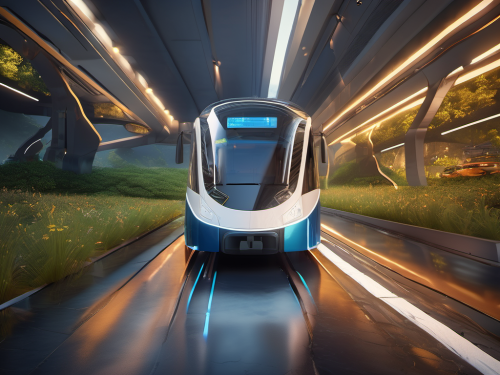
Renewable Energy and the Future of Transportation Systems

Renewable Energy and the Future of Transportation Systems
The transportation sector is a significant contributor to greenhouse gas emissions and air pollution. To combat these environmental issues, the integration of renewable energy sources into transportation systems is crucial for a sustainable future. Renewable energy, such as solar, wind, and biofuels, offers cleaner and more sustainable alternatives to traditional fossil fuels. In this article, we will explore the role of renewable energy in transforming transportation systems and shaping the future of mobility.
Rise of Electric Vehicles
Electric vehicles (EVs) have gained popularity as a promising solution to reduce emissions from traditional gasoline-powered vehicles. Powered by electricity from renewable sources, EVs produce zero tailpipe emissions, making them environmentally friendly. The increasing availability of charging infrastructure and improvements in battery technology have made EVs a viable option for consumers looking to reduce their carbon footprint.
Integration of Renewable Energy in Public Transportation
Public transportation plays a vital role in urban mobility and reducing traffic congestion. By integrating renewable energy sources into public transportation systems, cities can further reduce their carbon footprint. Electric buses, powered by renewable energy, are becoming increasingly common in urban areas. Additionally, the use of biofuels in public transportation fleets offers a cleaner alternative to diesel and petrol.
Smart Grids and Vehicle-to-Grid Technology
Smart grids enable the efficient integration of renewable energy sources into the electricity grid. Vehicle-to-grid (V2G) technology allows electric vehicles to not only consume electricity but also feed excess energy back into the grid. This bidirectional flow of energy helps balance the grid and maximize the utilization of renewable energy. By leveraging V2G technology, electric vehicles can become an integral part of the energy ecosystem, contributing to grid stability and resilience.
Challenges and Opportunities
Despite the numerous benefits of renewable energy in transportation, there are challenges that need to be addressed. The limited range of electric vehicles, the high upfront cost of EVs, and the need for a comprehensive charging infrastructure are some of the barriers to widespread adoption. However, advancements in battery technology, government incentives, and public-private partnerships present opportunities to overcome these challenges and accelerate the transition to a renewable energy-powered transportation system.
The Future of Transportation
The future of transportation lies in the integration of renewable energy sources, smart technologies, and sustainable practices. As we strive to reduce emissions and combat climate change, transitioning to a cleaner and more efficient transportation system is imperative. By investing in renewable energy infrastructure, promoting electric vehicles, and adopting innovative solutions, we can create a more sustainable and resilient transportation system for future generations.
Conclusion
Renewable energy plays a critical role in shaping the future of transportation systems. By harnessing the power of solar, wind, and biofuels, we can reduce our dependence on fossil fuels and mitigate the environmental impact of transportation. The transition to a renewable energy-powered transportation system requires collaboration among governments, industries, and consumers to drive innovation and sustainability. Together, we can pave the way for a greener and more sustainable future of mobility.









